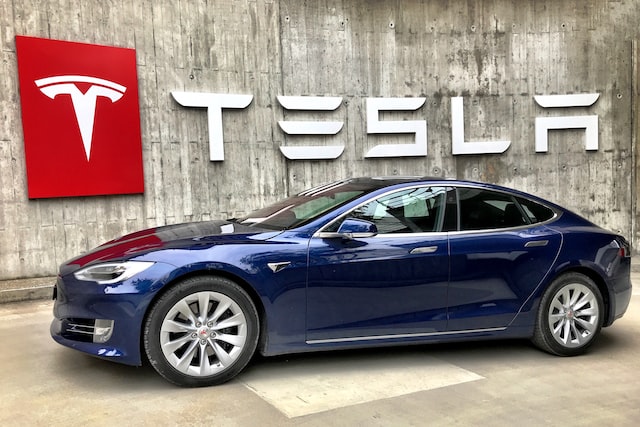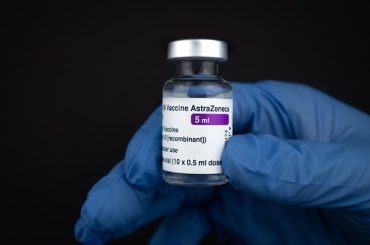Tesla, Inc. is an American electric vehicle and clean energy company founded in 2003 by entrepreneur and business magnate Elon Musk. The company is named after the renowned inventor and electrical engineer Nikola Tesla.
Tesla designs and manufactures a range of electric vehicles, including the Model S, Model X, Model 3, Model Y, and Cybertruck. The company also produces renewable energy products like solar panels, energy storage systems, and solar roofs.
Tesla’s electric vehicles are known for their long-range, high-performance, and advanced technology features. They have gained a significant market share in the electric vehicle industry and are considered one of the leading companies in the field. Additionally, Tesla’s energy products have helped to promote the adoption of clean and renewable energy sources.
Tesla’s mission is to accelerate the world’s transition to sustainable energy. The company is committed to reducing the world’s dependence on fossil fuels and mitigating the effects of climate change. Post its 2022 annual report analysis,
- In 2022, Tesla produced 1,369,611 consumer vehicles. Tesla is currently focused on increasing vehicle production, capacity, and delivery capabilities, improving and developing battery technologies, improving its FSD capabilities, increasing the affordability and efficiency of its vehicles, bringing new products to market, and expanding global infrastructure.
- In 2022, Tesla deployed 6.5 GWh of energy storage products and 348 megawatts of solar energy systems. Tesla is currently focused on ramping production of energy storage products, improving its Solar Roof installation capability and efficiency, and increasing the market share of retrofit and new build solar energy systems.
- In 2022, Tesla recognized total revenues of $81.46 billion, respectively, representing an increase of $27.64 billion compared to the prior year.
- In 2022, Tesla’s net income attributable to common stockholders was $12.56 billion, representing a favorable change of $7.04 billion compared to the prior year.
How does Tesla make money: Business Model & Supply Chain Analysis
Here is the PESTEL analysis of Tesla
A PESTEL analysis is a strategic management framework used to examine the external macro-environmental factors that can impact an organization or industry. The acronym PESTEL stands for:
- Political factors: Relate to government policies, regulations, political stability, and other political forces that may impact the business environment.
- Economic factors: Deal with economic conditions and trends affecting an organization’s operations, profitability, and growth.
- Sociocultural factors: Relate to social and cultural aspects that may influence consumer preferences, lifestyles, demographics, and market trends.
- Technological factors: Deal with developing and applying new technologies, innovations, and trends that can impact an industry or organization.
- Environmental factors: Relate to ecological and environmental concerns that may affect an organization’s operations and decision-making.
- Legal factors: Refer to the laws and regulations that govern businesses and industries.
In this article, we will do a PESTEL Analysis of Tesla.
PESTEL Analysis Framework: Explained with Examples
Political
- Government incentives and subsidies: One of the key political factors affecting Tesla is the availability of government incentives and subsidies for electric vehicles and clean energy solutions. These incentives help to reduce the cost of EVs for consumers, making them more competitive with traditional internal combustion engine (ICE) vehicles. Tesla’s success partially relies on continuing these policies and programs, which vary from country to country.
- Regulations and policies: Tesla is subject to numerous regulations and policies at national, state, and local levels. These include emission standards, fuel efficiency targets, and zero-emission vehicle (ZEV) mandates. As an EV producer, Tesla benefits from regulations encouraging the transition to cleaner transportation options.
- International trade policies: As a global company, Tesla is affected by international trade policies, such as import/export tariffs and trade agreements between countries. Tariffs can impact the cost of Tesla’s vehicles and components, while trade agreements can either facilitate or hinder Tesla’s expansion into new markets.
- Political stability: Tesla’s operations and investments can be impacted by the political stability of the countries in which it operates. Political instability can disrupt supply chains, hinder investment plans, or lead to regulation changes that could negatively affect the company.
- Infrastructure investment: Government investments in EV charging infrastructure can significantly impact Tesla’s growth and success. Widespread and accessible charging infrastructure encourages more consumers to adopt EVs, directly benefiting Tesla.
- Lobbying and political influence: Tesla faces competition from established automakers, who may lobby against policies that support EV adoption or work to maintain the status quo in the automotive industry. Tesla’s ability to navigate the political landscape and advocate for policies that support its business model is crucial for its long-term success.
Economic
- Economic growth and consumer purchasing power: The financial health of countries where Tesla operates is a significant factor. A strong economy with high consumer purchasing power increases the demand for vehicles, including electric vehicles (EVs) like Tesla. Conversely, during economic downturns or recessions, consumers may be less likely to purchase new cars or opt for more affordable alternatives.
- Exchange rates: As a global company, Tesla is exposed to fluctuations in exchange rates, which can impact the cost of production, raw materials, and imported components. Exchange rate volatility can also affect the competitiveness of Tesla’s products in international markets, as it influences the final price of the vehicles for consumers.
- Interest rates: Interest rates can affect the financing options available to both Tesla and its customers. Low-interest rates can help Tesla secure affordable financing for expansion projects and make it easier for consumers to purchase their vehicles. On the other hand, higher interest rates can increase the cost of borrowing, potentially discouraging consumers from buying new vehicles.
- Inflation: Inflation impacts the overall cost of goods and services, including the cost of raw materials and components for Tesla’s vehicles. High inflation can increase production costs, which may be passed onto consumers through higher vehicle prices. This could make Tesla’s products less competitive in the market.
- Unemployment: The unemployment rate can affect the demand for Tesla’s vehicles. High unemployment rates typically result in decreased consumer purchasing power and lower demand for new vehicles. On the other hand, low unemployment rates and a strong job market can boost consumer confidence and increase demand for Tesla’s products.
- Fuel prices: Fluctuations in fuel prices can impact the attractiveness of electric vehicles compared to traditional internal combustion engine (ICE) vehicles. High fuel prices can make EVs more appealing due to their lower operating costs, while low fuel prices may reduce the financial incentive to switch to electric vehicles.
- Competition: Tesla faces competition from both established automakers and emerging electric vehicle manufacturers. The market competition level affects pricing, product innovation, and overall demand for Tesla’s vehicles.
Sociocultural
- Consumer attitudes towards the environment: Growing awareness and concern for environmental issues like climate change and air pollution have increased demand for sustainable and eco-friendly products. Tesla’s electric vehicles (EVs) and clean energy solutions align with these values, which can positively impact consumer preference for their products.
- Changing lifestyle preferences: Urbanization and a shift towards more sustainable lifestyles have increased demand for energy-efficient transportation options, such as EVs and public transportation. Tesla’s focus on producing electric vehicles aligns with these changing lifestyle preferences, making its products attractive to an environmentally-conscious audience.
- Adoption of new technology: Consumers’ widespread acceptance and adoption of new technologies also impact Tesla’s success. The growing popularity of advanced technologies like autonomous driving, electric powertrains, and connected vehicles can increase the demand for Tesla’s innovative products.
- Demographic trends: The population’s age distribution and income levels can also influence the demand for Tesla’s vehicles. For instance, younger generations may be more receptive to adopting electric vehicles, while higher-income individuals may be more willing to pay a premium for Tesla’s advanced features and technology.
- Social status and brand perception: Tesla’s brand is often associated with luxury, innovation, and environmental consciousness. This brand perception can make Tesla vehicles appealing as status symbols and lifestyle statements, positively impacting demand.
- Health and wellness concerns: As people become more concerned about the health effects of air pollution caused by internal combustion engine vehicles, they may be more inclined to adopt cleaner transportation options, such as electric vehicles. This trend can benefit Tesla as a leading EV manufacturer.
Technological
- Electric vehicle technology: Tesla’s success largely depends on its ability to innovate and develop cutting-edge electric vehicle (EV) technology. This includes advancements in battery technology, powertrain efficiency, and charging infrastructure, directly impacting Tesla’s vehicles’ performance, range, and affordability.
- Autonomous driving technology: Tesla is a leader in developing autonomous driving technology, investing heavily in research and development to improve its Autopilot and Full Self-Driving (FSD) capabilities. As autonomous driving technology becomes more advanced and widely accepted, Tesla’s position as an early adopter can offer it a competitive advantage.
- Connectivity and software: Tesla’s vehicles are known for their advanced connectivity features and over-the-air (OTA) software updates, allowing the company to improve vehicle performance and add new features continuously. Staying ahead in developing connected vehicle technology and software is crucial for Tesla to maintain its competitive edge.
- Manufacturing technology: Tesla’s manufacturing processes, including automation and robotics, are key to its ability to scale production and reduce costs. The company’s investment in innovative manufacturing technology, such as its Gigafactories, can impact its efficiency, production capacity, and overall competitiveness in the market.
- Energy storage and renewable energy: Tesla’s involvement in clean energy solutions, such as solar energy and energy storage systems, requires continuous innovation and development. Advancements in solar panel efficiency, battery storage technology, and grid integration can impact Tesla’s energy product offerings and market position.
- Cybersecurity: As Tesla’s vehicles become more connected and reliant on software, ensuring the security of these systems is of utmost importance. Advances in cybersecurity can help Tesla protect its vehicles from potential hacking threats, maintain customer trust, and comply with evolving data security regulations.
- Emerging technologies: Tesla must also keep an eye on emerging technologies that could disrupt the automotive and energy industries. For example, advancements in hydrogen fuel cell technology, alternative battery chemistries, or new transportation methods could impact Tesla’s long-term strategy and market position.
Environmental
- Climate change: Growing awareness and concern about climate change have increased the demand for sustainable and eco-friendly products. Tesla’s electric vehicles (EVs) and clean energy solutions, such as solar panels and energy storage systems, directly address these concerns by reducing greenhouse gas emissions and reliance on fossil fuels.
- Emission standards and regulations: Governments worldwide are implementing stricter emission standards and regulations to combat air pollution and climate change. These policies encourage the adoption of electric vehicles and renewable energy, which benefits Tesla as a leading EV manufacturer and clean energy solutions provider.
- Resource scarcity: The increasing scarcity of natural resources, such as oil, impacts the automotive industry and pushes for alternative energy sources. As a producer of electric vehicles and renewable energy solutions, Tesla can capitalize on this trend by offering sustainable alternatives to traditional internal combustion engine vehicles.
- Waste and recycling management: The production of electric vehicles, batteries, and clean energy solutions generates waste and requires materials like lithium and cobalt. Tesla must ensure responsible sourcing, waste management, and recycling practices to minimize its environmental footprint and address potential resource extraction and end-of-life disposal concerns.
- Energy production and consumption: As the demand for electric vehicles grows, so does the need for clean energy. Tesla’s investments in renewable energy solutions, such as solar panels and energy storage systems, help address this challenge by providing sustainable energy options that can reduce the environmental impact of EV charging.
- Environmental policies and certifications: Tesla must comply with various environmental policies, regulations, and certificates in its operating countries. These can include energy efficiency standards, waste management regulations, and product certification requirements, all of which can influence Tesla’s operations and growth.
Legal
- Vehicle safety regulations: Tesla is subject to numerous vehicle safety regulations and standards in different countries. Compliance with these regulations is crucial for Tesla to ensure the safety of its products and maintain consumer trust.
- Emission and environmental regulations: Tesla must adhere to various emission and environmental regulations related to producing and operating its electric vehicles (EVs) and clean energy solutions. These regulations can influence Tesla’s manufacturing processes, product design, and overall business strategy.
- Labor laws and regulations: Tesla is subject to labor laws and regulations in the countries where it operates, including employee wages, working conditions, and workers’ rights. Compliance with these laws is essential for maintaining a healthy work environment and avoiding potential legal disputes.
- Intellectual property rights: Tesla relies on patents, trademarks, and copyrights to protect its innovations and technology. Ensuring the protection of intellectual property rights is crucial for Tesla to maintain its competitive advantage and prevent unauthorized use of its proprietary technology.
- Trade and import/export regulations: Tesla must comply with various trade and import/export regulations in the countries where it operates or sells its products. These regulations can impact the cost and availability of Tesla’s vehicles and components in different markets.
- Data protection and privacy laws: As Tesla’s vehicles become increasingly connected and rely on software and data, the company must comply with data protection and privacy laws, such as the General Data Protection Regulation (GDPR) in the European Union. Compliance with these regulations is essential for ensuring the security of customer data and maintaining consumer trust.
- Product liability and recalls: Tesla must navigate product liability laws and manage potential recalls related to vehicle defects or safety concerns. Effective management of product liability and recalls can help Tesla maintain its reputation for quality and safety. At the same time, non-compliance or mishandling of such issues can lead to legal disputes and reputational damage.











